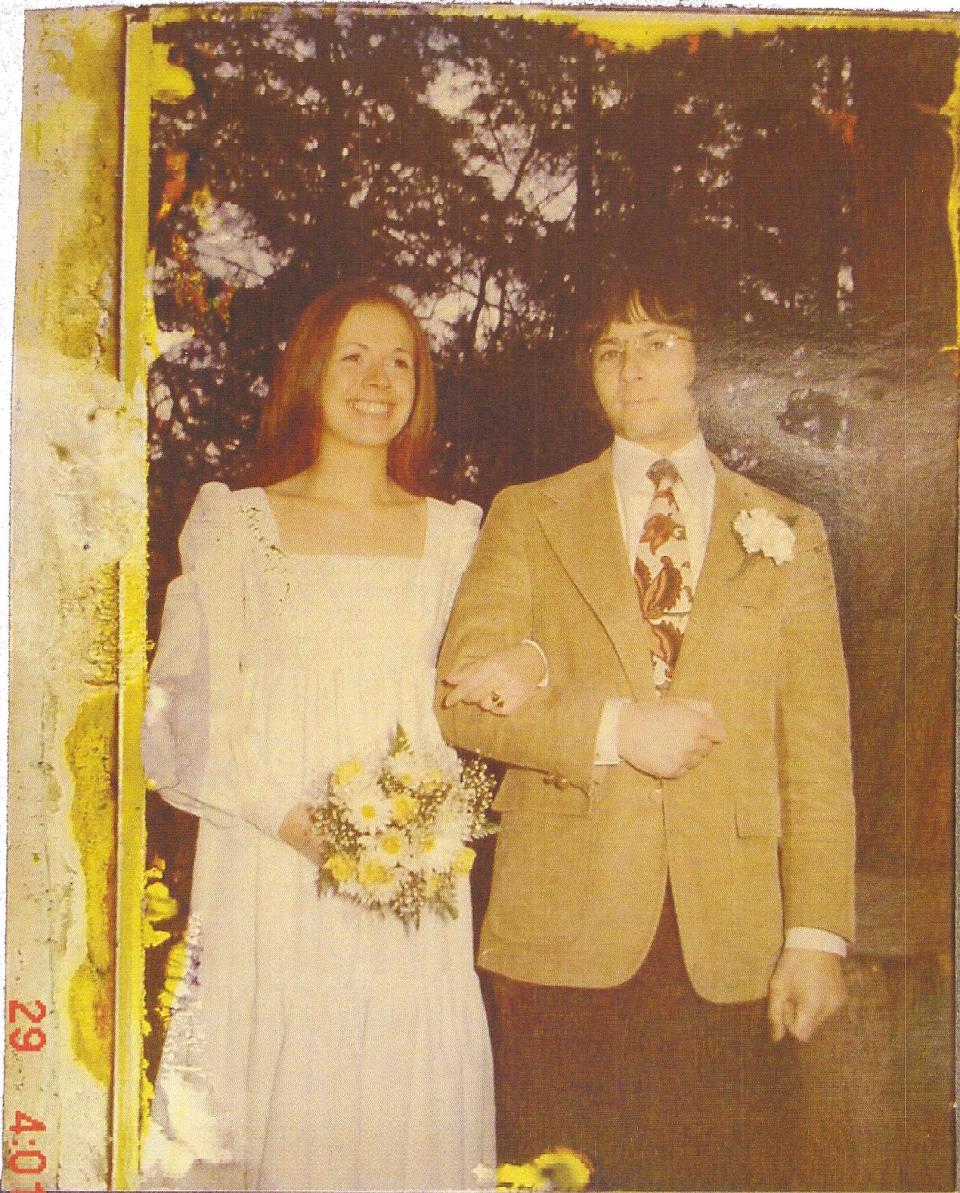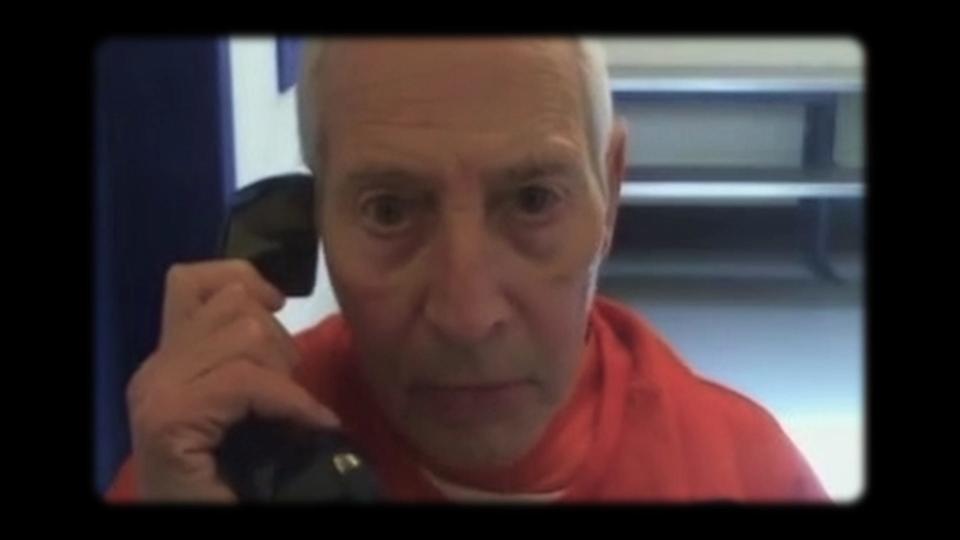Ahead of Season 2, How 'The Jinx' led to Robert Durst's long-awaited conviction
- Oops!Something went wrong.Please try again later.
"The Jinx" returns Sunday (HBO, 10 EDT/PDT and streaming on Max), nine years after its first installment finally brought elusive real estate heir Robert Durst to justice. Before diving in to Part 2, which focuses on Durst's friends who aided in his crimes, here's a refresher on the story.
One month before HBO's “The Jinx” debuted on Feb. 8, 2015, a TV critic asked director Andrew Jarecki — in front of a room of other critics and reporters — what made his six-episode docuseries different.
“They were just kind of yawning, and they said, ‘I don’t get it. Why do we need more true crime? It's just going to be another story like I see on TV every night,’” Jarecki recalls, seated next to his producing partner Zac Stuart-Pontier. “And I remember thinking, 'How do I respond to this question?' All I can really say is this is really different.”
In that moment, Jarecki couldn’t spoil his finale and announce he’d captured a recorded confession from his subject, Robert Durst, the grandson of Joseph Durst. Joseph founded The Durst Organization in 1915, 13 years after emigrating from Austria with just $3 to his name. The family business has amassed more than 16 million square feet of office, retail and residential space in Manhattan, according to its website.
But Bob's life was not as fortunate. His first wife, Kathleen McCormack, disappeared from the couple’s Westchester County, N.Y., home in 1982. His best friend Susan Berman was murdered in Los Angeles in 2000, and his neighbor, Morris Black, was discovered dismembered in Galveston Bay, Texas, in 2001.
Hulu's 'Under the Bridge' will make you wonder where your children are

Prior to “The Jinx,” Durst was tried only for Black’s death, but a jury acquitted him in 2003.
How 'The Jinx' director confronted Robert Durst with damning evidence
Enter Jarecki and crew. In the Season 1 finale, Durst is asked about a note alerting the Beverly Hills Police Department to a death at Berman’s Benedict Canyon address. It’s a letter “only the killer could’ve written,” Durst reasons in the episode, because only they'd know she'd died.
Jarecki presents Durst with a letter he’d written Berman with Beverly Hills misspelled as “Beverley” in block letters, just like the note about the cadaver does, and in nearly identical handwriting. While Durst repeatedly denies writing the note to police on camera, in the bathroom away from the cameras, he confesses. “There it is. You’re caught,” Durst mutters to himself. “What the hell did I do? Killed them all, of course.”
FBI agents arrested Durst for Berman's death at a New Orleans hotel on March 14, 2015, the day before “The Jinx” Season 1 finale aired. They found a loaded revolver, more than $40,000 in cash, a latex mask and a fake ID for an "Everette Ward."
So how did “The Jinx” help law enforcement finally convict Durst? We’ll start with Jarecki’s first Durst-inspired project, 2010’s “All Good Things” (streaming on Netflix). Jarecki directed the film, inspired by Durst’s 1973-82 marriage to McCormack, that starred Ryan Gosling and Kirsten Dunst as the David and Katie Marks, a thinly-disguised version of the real-life couple.
Love story (and Ryan Gosling) led Andrew Jarecki to pursue the story
“The thing that compelled me, really, was that before (everything with Durst) happened, there was this love story, and that he really was clearly in love with this young girl, who in a way saw the best in him,” Jarecki says. “That's what made me want to work on ‘All Good Things.’ That was the hidden story of this guy who had ended up in this crazy place.”
After completing the film, Jarecki thought he’d finished with Durst. But after reading an article in The New York Times about Gosling's portrayal, Durst phoned Jarecki, the director says. Which is funny, considering Jarecki says Gosling felt “somewhat tortured by even whether he was going to do the movie to begin with.”
Matthew Perry hailed for '17 Again' comedy chops: 'He'd figure out a scene down to the atoms'
“When we really got into talking about it, he said, ‘Well, I'm just afraid of playing this living person and not getting it right,’” says Jarecki. “And I said, ‘Well, what if his name wasn't Bob Durst in the movie?’ And he said, ‘Oh, yeah, that would change it.’ So we ended up slightly changing the names in the film, and it gave us more freedom to (tell the) story in a way that we weren't trying to imitate Bob, although there are a lot of similarities.”
Jarecki expected his 2010 chat with Durst would be quick and could perhaps be a companion piece to his movie. “But then (it) turns out the interview lasts for 21 hours and he (Durst) says a lot of incautious things, a lot of things that he's never said to anyone else," Jarecki says. "And now we're in the middle of it, and we're doing this investigation, and Zac and I started to really learn what was in and around all these little statements that he made to us in the interview. And suddenly we're in another five-year endeavor.”
They found the letter Durst had written Berman and sat down with Durst once more in 2012. They began working with a Los Angeles County deputy district attorney, John Lewin, who specialized in cold cases.

Robert Durst's confession: 'I killed them all, of course'
With the letter and Durst identifying the author as Berman's killer, Jarecki says law enforcement felt they had enough concrete evidence. Two years after the crew’s second sitdown with Durst, they uncovered his hot mic confession while reviewing footage and turned that over to the DA as well.
Stuart-Pontier remembers editor Shelby Siegel bursting into his office after hearing Durst say to himself, “You’re caught.”
“Then we looked at it, and I was like, ‘Oh, there's probably more,’” Stuart-Pontier says, thinking, “'he's going to say a bunch of stuff in his bathroom.' We're playing it and rewinding it and playing it and rewinding it. I get goosebumps thinking about it. It was a crazy moment.”
That crazy moment aided in Durst’s capture at long last. In October 2021, Durst was sentenced to life without parole for the death of Berman, his "best friend." The following month, he was indicted in McCormack’s death. Durst died January 10, 2022 at 78 from natural causes. He was being held at California Health Care Facility, in Stockton but died at an external hospital, according to a statement from the California Department of Corrections and Rehabilitation.
'Shogun' star Anna Sawai discusses tragic Lady Mariko's last stand, Episode 9 power moves
This article originally appeared on USA TODAY: The Jinx' Part 2: HBO documentary revisits Robert Durst's undoing

